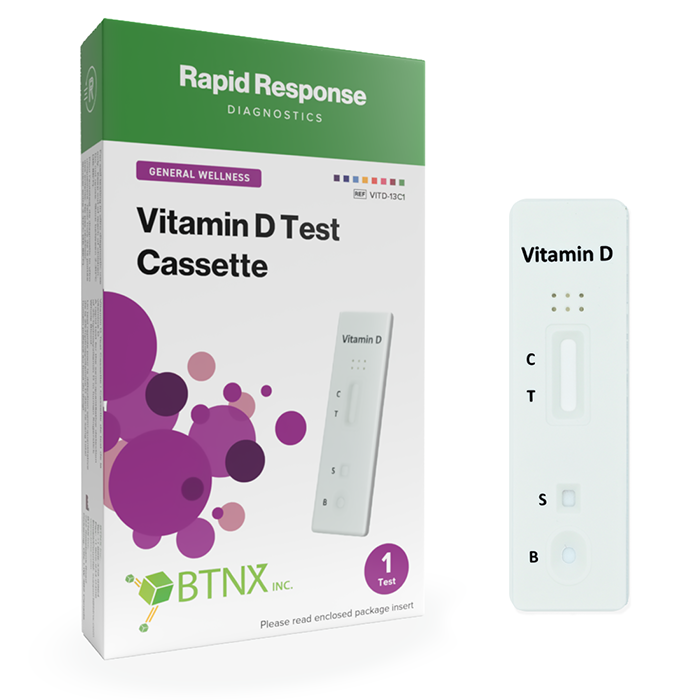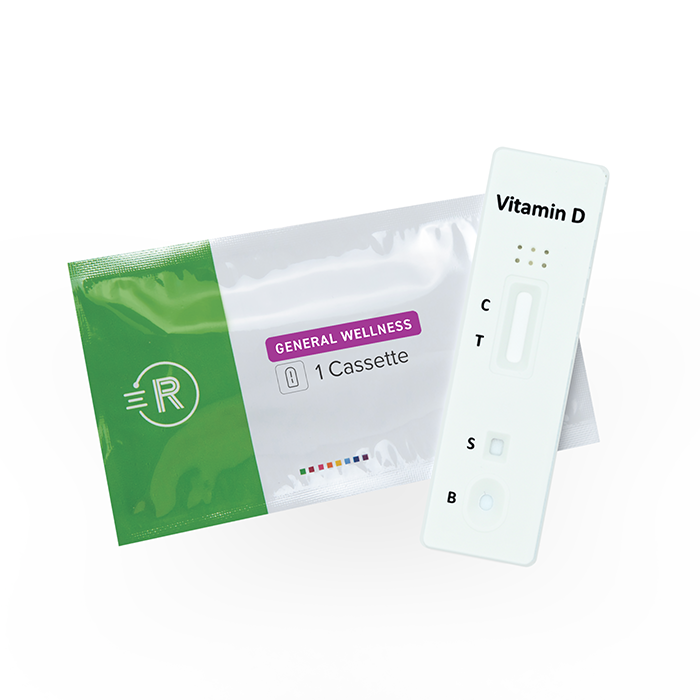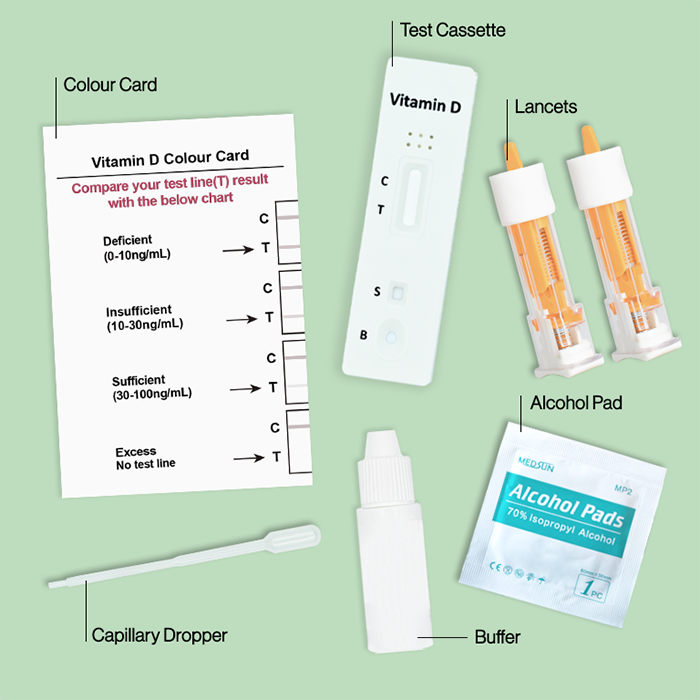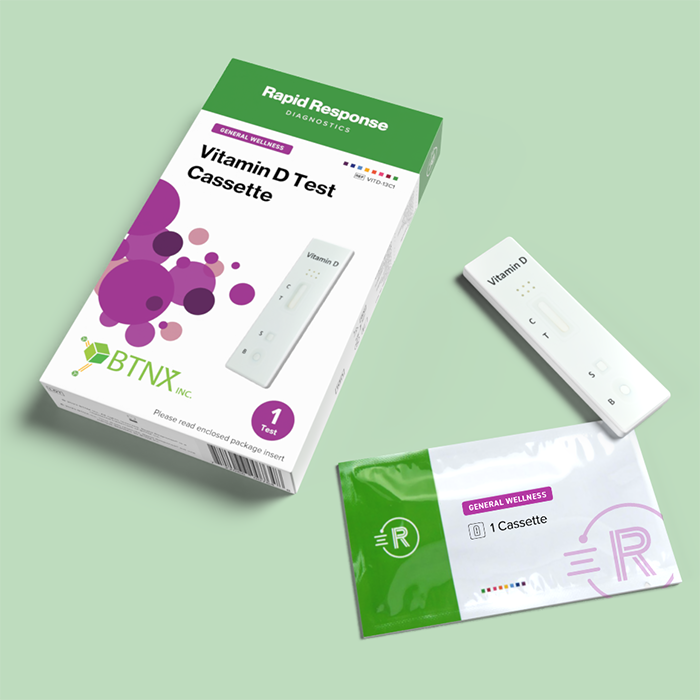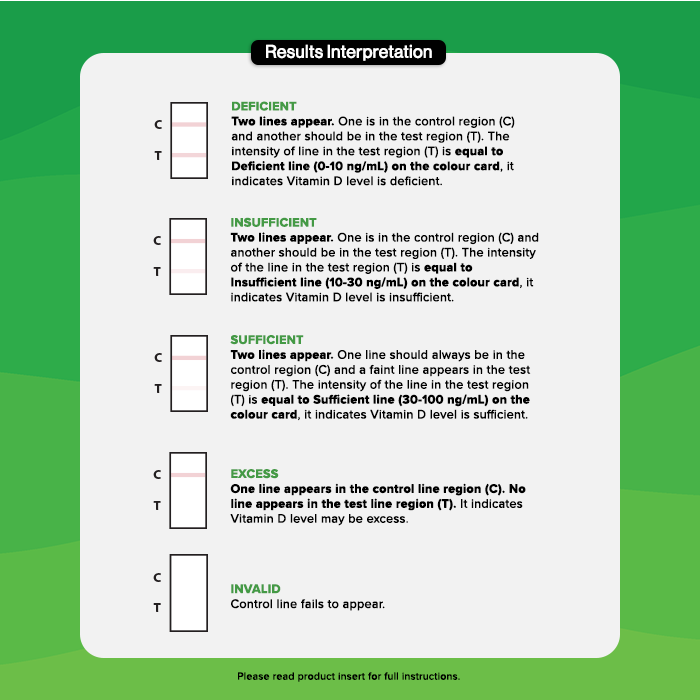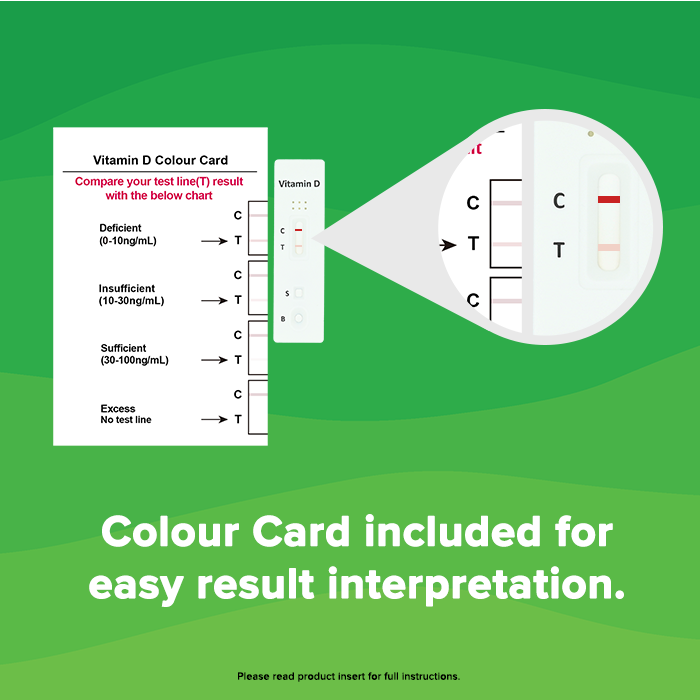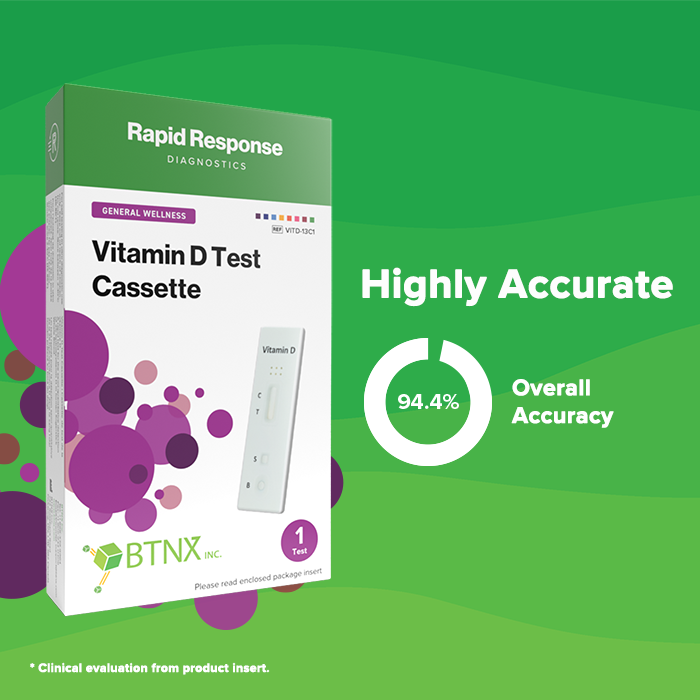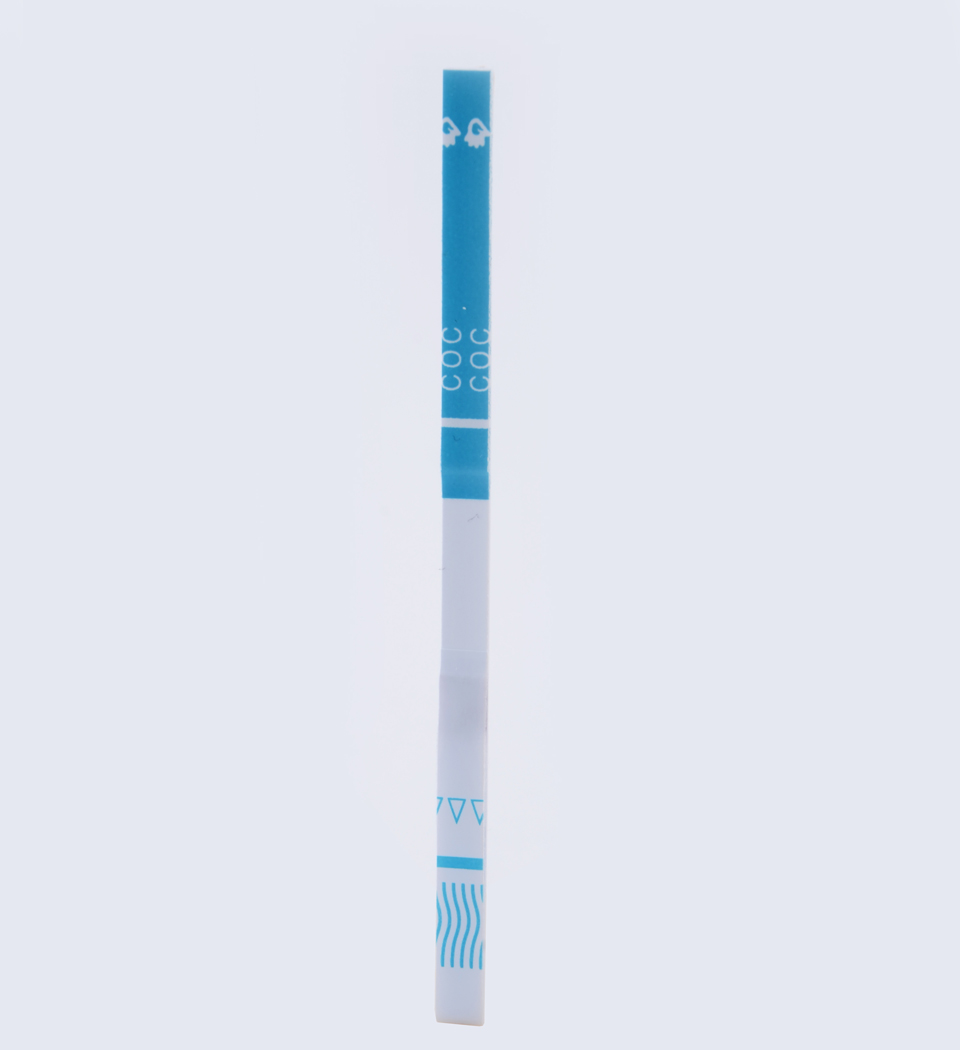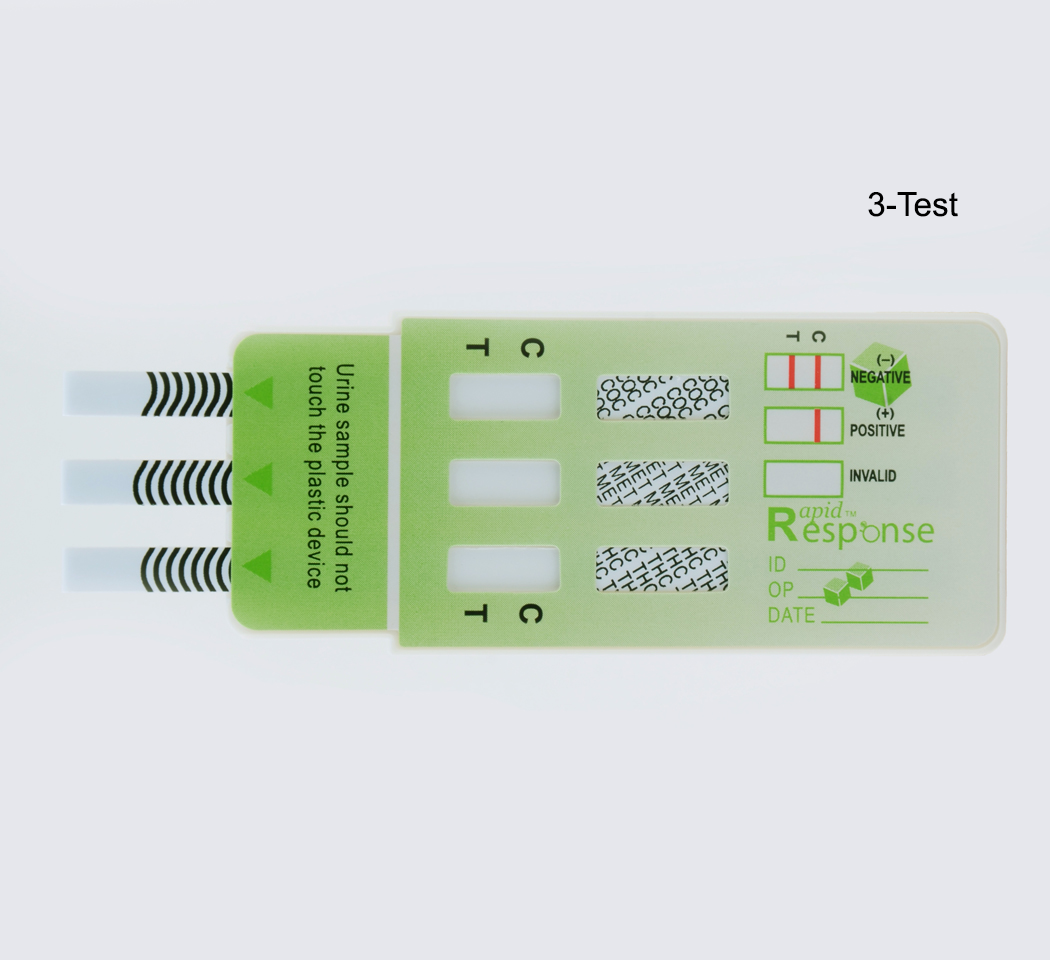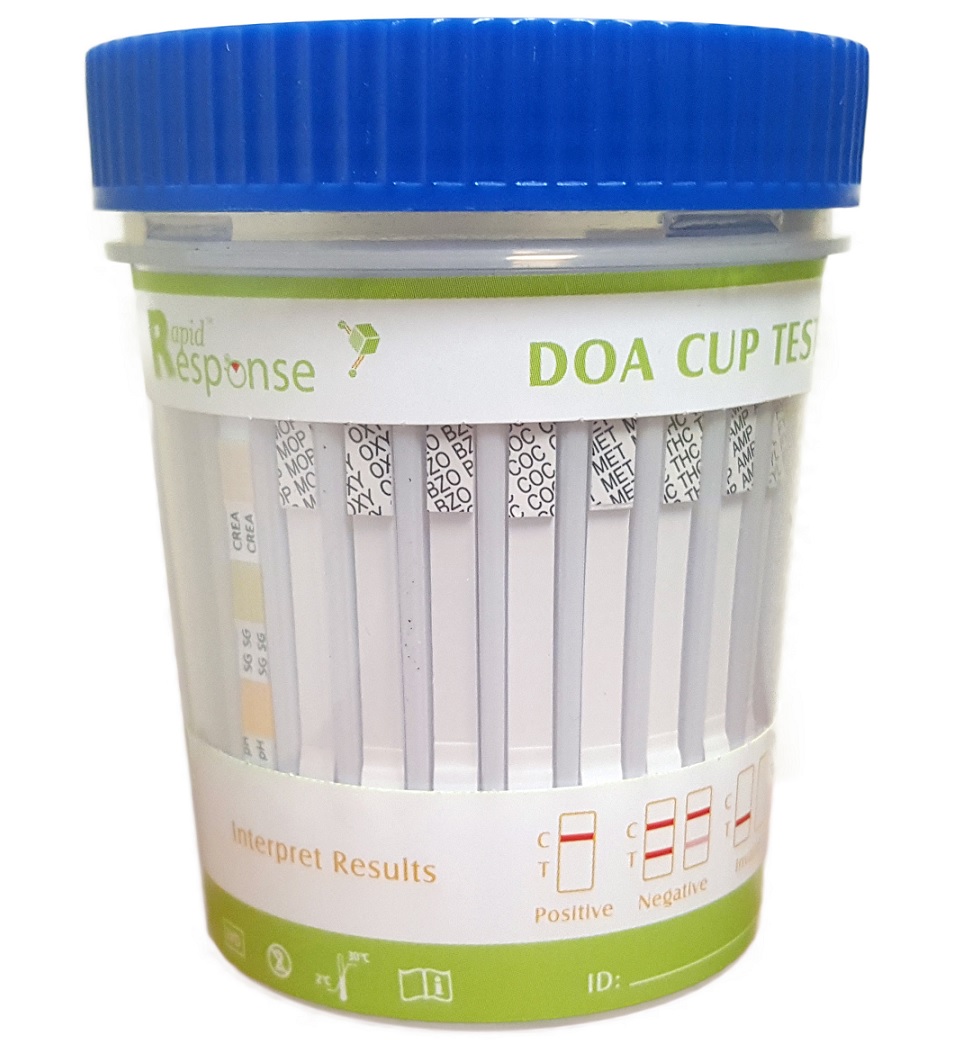Rapid Response® Vitamin D Test Cassette
Product Information
Product Code: VITD-13C1Sample: Blood
Format: Cassette
Quantity: 1, 2, 5, or 25 Tests/Kit
Accuracy: 94.4%
Time to result: 10 minutes
Storage Condition: 2-30°C/36-86°F
Test Principle: Lateral Flow Immunoassay
Contents
1 x Test Cassette1 x Product Insert
1 x Buffer
2 x Lancet
1 x Alcohol Pad
Capillary Dropper
Colour Card
Product Description
The Rapid Response® Vitamin D Test Cassette aids in the detection of Vitamin D deficiency that is fast, accurate, and easy to use.
In medicine, 25-hydroxy Vitamin D is the main storage form of vitamin D in the body. Therefore, the overall status of vitamin D can be determined by detecting the content of 25-hydroxy (25-hydroxyvitamin D (25 (OH) D) Vitamin D. The Rapid Response® Vitamin D Test Cassette is a single-use rapid test for the semi-quantitative detection of 25-hydroxy in human fingerstick whole blood. This assay provides a preliminary diagnostic test result and can be used to screen for Vitamin D deficiency.
Authorized for self-testing in vitro diagnostic use in Canada.
Vitamin D refers to a group of fat-soluble secosteroids responsible for increasing intestinal absorption of calcium, iron, magnesium, phosphate, and zinc. In humans, the most important compounds in this group are vitamin D3 and vitamin D2.[1] Vitamin D3 is naturally produced in the human skin through the exposure to ultraviolet light and Vitamin D2 is mainly obtained from foods. Vitamin D is transported to the liver where it is metabolized to 25-hydroxy Vitamin D. In medicine, a 25-hydroxy Vitamin D blood test is used to determine Vitamin D concentration in the body. The blood concentration of 25-hydroxy Vitamin D (including D2 and D3) is considered the best indicator of Vitamin D status.
Vitamin D deficiency is now recognized as a global epidemic.[2] Virtually every cell in our body has receptors for Vitamin D, and require “Sufficient” levels of Vitamin D for proper and adequate function. The health risks associated with Vitamin D deficiency are far more severe than previously thought. Vitamin deficiency has been linked to various serious diseases, such as Osteoporosis, Osteomalacia, Multiple Sclerosis, Cardiovascular Diseases, Pregnancy Complications, Diabetes, Depression, Strokes, Autoimmune Diseases, Flu, Different Cancers, Infectious Diseases, Alzheimer, Obesity and Higher Mortality etc.[3]
FAQ
|
In medicine, a 25-hydroxy Vitamin D is the main storage form of vitamin D in the body. Therefore, the overall status of vitamin D can be determined by detecting the content of 25-hydroxy Vitamin D. 25-hydroxy Vitamin D level less than 30 ng/mL in case of a positive result, indicates Vitamin D Deficiency or Insufficiency. Vitamin D supplements can be recommended in these cases.
|
|
The Rapid Response® Vitamin D Test Cassette can be used any time of the day.
|
|
The results are accurate as long as the instructions are carefully followed. Nevertheless, the result can be incorrect if the Rapid Response® Vitamin D Test Cassette gets wet before test performing, if the quantity of blood dispensed in the sample well is not sufficient, or if the number of buffer drops are less than 2 or more than 3. The capillary dropper provided in the box ensures the appropriate volume of blood is collected. Due to the immunological principles involved, there exists the possibility of false results in rare cases. A consultation with the doctor is always recommended for such tests based on immunological principles.
|
|
Please compare the T line intensity with “Vitamin D Colour Card” provided with the kit.
|
|
No. The result should be read 10 minutes after adding the buffer. The result is unreliable after 20 minutes.
|
|
If the result is deficient or insufficient, it means that the Vitamin D level in blood is less than 30 ng/mL and that you should consult a physician. The physician will decide whether additional analysis should be performed and if supplementation/lifestyle changes are required.
|
|
If the result is sufficient, it means that the Vitamin D level is higher than or equal to 30 ng/mL and is within the normal range. However, cases of Vitamin D toxicity (hypercalcemia), though rare, cannot be excluded based on such test results. If such symptoms persist, it is recommended to consult a physician.
|
References
[1] Holick MF (March 2006). High prevalence of vitamin D inadequacy and implications for health. Mayo Clinic Proceedings. 81 (3): 353–73.
[2] Eriksen EF, Glerup H (2002). Vitamin D deficiency and aging: implications for general health and osteoporosis. Biogerontology. 3 (1-2): 73–7.
[3] Grant WB, Holick MF (June 2005). Benefits and requirements of vitamin D for optimal health: a review. Alternative Medicine Review.10 (2): 94–111.
For additional information regarding any of our products, please feel free to Contact Us

